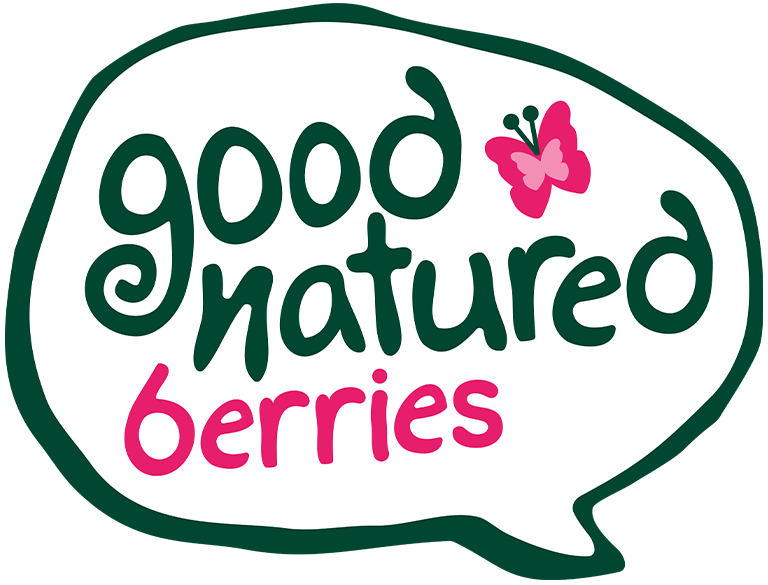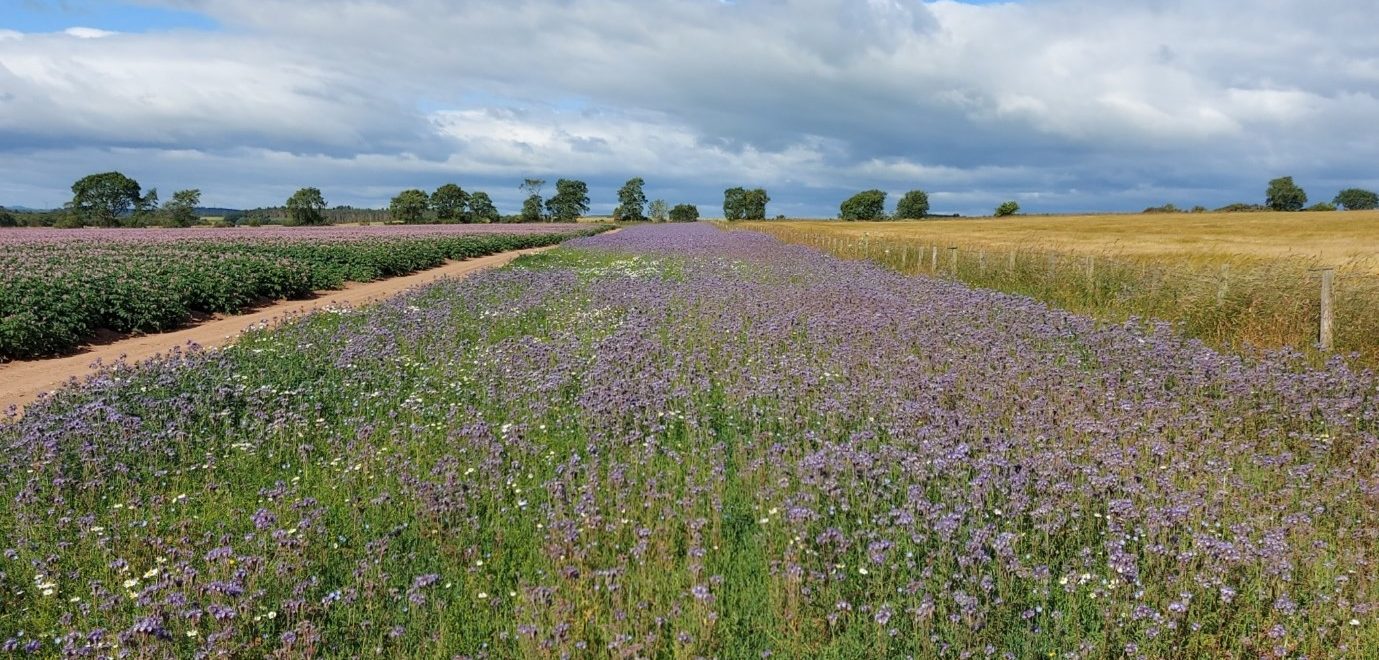This summer, with the help of volunteer pilot farms and our agronomy team, Angus Soft Fruits, the mother company of Good Natured, have been measuring the impact of planting pollinator friendly conservation crops on uncropped areas, including fallow land, potato headlands and between tunnels. We hope that this pilot will boost the number and diversity of bumblebees and other pollinators, as well as providing a habitat for natural predators like hoverflies, ladybirds, and ground beetles. Pollination is a valuable ecosystem service which benefits many crops, including our berries. Studies have shown that increased pollinator diversity can improve strawberry quality, shelf life and yields.
The pilot was kicked off on three farms in early spring, with advice from King’s Seeds and Littlewood Land Care. The selected seed mixes contain a range of valuable pollen and nectar sources, including phacelia, vetch, red clover, and ox-eye daisy. Planting was done in late spring and now, in July, we are starting to see the beautiful flowers come to life – bringing with them with an explosion of pollinator activity. Throughout the summer we will monitor flower coverage and the impact on pollinators by doing bee walks for bumblebees and FIT counts for more general pollinator presence. Our monitoring tools come from the Bumblebee Conservation Trust and UK Pollinator Monitoring Scheme, and we share our data with them every time we complete a count.
At Good Natured we’re passionate about sourcing berries which are grown in harmony with their natural landscape and one of our core sustainability goals is to have a positive impact on local biodiversity.
Thanks to our growers, Allen, Keith, and David for volunteering to help, and we look forward to sharing further results at the end of the trial!

